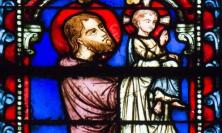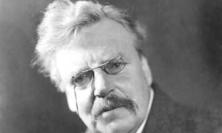As we reach the fourth stage of our Advent Examen, the focus is on sorrow, but it is not about wallowing or self-condemnation, as Stephen Hoyland emphasises. The preceding steps of the Examen have created a context of gratitude in which our sorrow, when we engage with it properly, can create space for us to receive God’s love and can lead us to new ways of loving.
Read the guide to the Examen on which the format of our Advent Examen is based.
The Examen helps us accept sorrow as part of an affirming relationship with God, avoiding unhealthy preoccupation with failure.
In the Christian life, there is a place for a traditional examination of conscience. At times I do need to focus on the entire reality of sin in my life, those acts of commission and omission that are out of tune with the goodness of God. Preparation for a celebration of the sacrament of reconciliation invites such an in-depth introspection. The Twelve Step programme for addicts (and who isn’t addicted to something?) requires ‘a searching and fearless moral inventory of ourselves’. In the Spiritual Exercises of St Ignatius, several days are spent meditating on the reality of all kinds of sin: in the scriptures, human history, in the contemporary world, and a day is also given over to an honest reckoning of my own personal sin. That breadth and depth of scrutiny has a place in a healthy spiritual life. However, the Examen is not that place. If these uncompromising searches reveal a landscape including weeds, marshes and boulders that have held me up and still get in the way of progress, it is better that I know they are there. In the subsequent practice of the Examen I can more easily recognise where I have dallied in some part of that territory because it has been, at other times, scrutinised. I know the pitfalls better and can spot their influence more quickly. In the Examen I do not dwell there long, however. I note their continuing influence. I visit sorrow without taking up residence.
Sin is not a popular word. Sometimes our Christian tradition has been so preoccupied with sin that it has oppressed people. An unhealthy focus on sin has been one of our sins. God’s goodness does not want us permanently bent double like the woman in the Gospel of Luke (13:10-17) whom Jesus touches, makes straight and affirms as a daughter of Abraham. There is a difference between humility and self-loathing. The Examen helps us resist a destructive, negative focus because we let Jesus touch that twisted part of us and straighten us up again.
Also, significantly, the Examen has already encouraged us to recognise and savour ways in which we have cooperated with grace. Thank God! I’m a sinner, yes, but not a total disaster. I am more able to cast down my eyes in sadness if I can first stand up straight as a disciple of Christ and experience our shared delight in the fruit that is coming out of my life. The context of gratitude fortifies and limits opportunity for self-condemnation. Then, and only then, am I asked to recognise where I have failed to follow Christ, and I can feel the sorrow of that. The flow of the Examen gently leads on to reconciliation and healing and to hearing again the consistent call of Jesus reaching deeper than guilt and shame. I may say with Peter, ‘Go away from me, Lord, for I am a sinful man’ (Lk 5:8) and then sense Jesus, knowing this to be true, looking back at me with love, and making abundantly clear that his plan for me remains intact and there is fishing to be done. I am still called to be a disciple: to be with him, to be sent out to preach the gospel, and to have authority to cast out demons (Mk 3:14). What a relief it is to be set free from the façade of sanctity. I can be who I really am before God and whatever ‘demon’ it is that obscures the truth of who and what I am is itself cast out.
Sometimes the sorrow is not because of personal sin but has another lesson for me. Perhaps I notice my inevitable entanglement in structural sin, which harms the poor through unfair trade or the earth because of my contribution to pollution. This sorrow may help God show me a way to serve justice and peace better.
The sorrow might be because I witnessed the suffering or sin of others. I can share this with God and we are then together in compassion for the world. There is something of the painful consolation of the third week of the Spiritual Exercises in this going to Jerusalem with Christ.
Whatever the source of the sorrow, God helps me to see it, to let the sadness be whatever it is, to assuage anxiety, counter despair, and inspire courage and love. With God’s help, I stand erect again, a daughter or son of God, and am able to face the next day’s challenge of finding my own particular creative way of loving the world in the direction of the Kingdom.
Do I have to ask myself a variety of questions to draw out these sources of sorrow as might happen in the examination of conscience? Only if that is how I best work. We pray as we can and not as we can’t, as Abbot Chapman affirms. Traditionally, the ‘list of questions’ approach has been dominant. For many of us, a more helpful way is to stop and simply notice where we are in touch with a feeling of sorrow. The Spirit plays in me, and my body and emotions register dissonant notes. How wonderful is this? Wherever I go, I carry with me a God-given tool for discerning what is and is not of God. And what, pray, do we call this miraculous device? Why, it is my body! In the Examen, this discernment tool is sharpened and made more able to cut to the quick.
The Examen question I personally find most helpful for identifying sorrow is the one suggested by the Linns in their popular book, Sleeping with Bread: ‘As I look back over the time, for what do I now feel least thankful?’[1] I might stand and bring my hand to my heart, and ask Jesus to bring to my heart the moment today for which I feel least thankful (having already performed this gesture and made this petition in the search for the most thankful). I like this method’s simple, direct, kinaesthetic approach. I find that Jesus puts me in touch with my sorrow and his loving presence helps me to be present to it, to let it be, and then to breathe in his love and healing just as I am.
A conversation or colloquy takes place with Jesus, which might be a verbal exploration of what my sorrow is communicating, or a wordless connecting to each other as together we are present to the experience. Words are not always needed between very good friends.
This sojourn into sorrow is neither wallowing in mud nor avoidance of pain, but a middle way. It resists self-condemnation and avoids premature canonisation. It is an exercise in humility as an acceptance of the truth of who I am, in God’s love, at Christ’s side, in the Spirit’s power.
In this part of the Examen I am called to know myself as a forgiven sinner and to rejoice in that grace of the first week of the Spiritual Exercises. I am given the power to be my real self, to know God’s acceptance and, paradoxically, because of that very acceptance of my true stature, to grow more towards the likeness of Christ to which I am always called and which no sorrow can silence.
Stephen Hoyland works in Ignatian outreach with the Jesuits in Britain.
- Advent Examen: 5. Hope
Pray the Examen with Pray as you go:
[1] Dennis Linn, Sheila Fabricant Linn, Matthew Linn, Sleeping with Bread: Holding What Gives You Life (Paulist Press, 1995).






